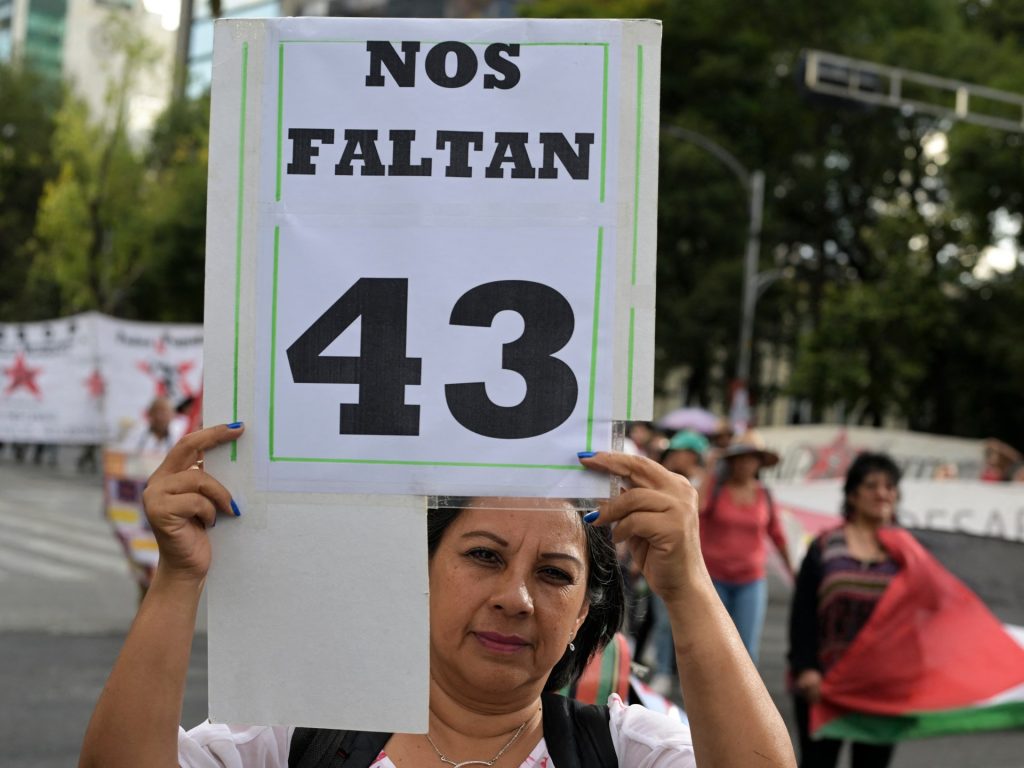The arrest of Gildardo Lopez Astudillo, an alleged cartel chief in Mexico, has brought renewed attention to the decade-old case of the disappearance of 43 students in Iguala. Lopez Astudillo, also known as “El Gil”, was detained on charges of organized crime and taken to a maximum-security prison. This is not his first time being arrested in connection to the case, as he was previously jailed in 2015 but released in 2019 due to illegally obtained evidence. He later served as a protected witness, providing details about his cartel’s alleged involvement in the students’ disappearance.
The disappearance of the students in September 2014 has been a national scandal in Mexico, with investigators blaming the Guerreros Unido drug cartel and corrupt police for the kidnapping. The exact circumstances of what happened to the students remain unknown, but a truth commission set up by the government has labeled the case a “state crime”, with military involvement also suspected. Despite arrests and orders for dozens of suspects, including military personnel and a former attorney general, only a few of the victims’ remains have been identified.
Relatives of the missing students have been preparing for demonstrations to mark the 10th anniversary of their disappearance, making Lopez Astudillo’s arrest timely. The case of the missing students has ignited years of protests in Mexico, as families seek justice and closure for their loved ones. The arrest of Lopez Astudillo brings hope that more information may come to light regarding the events surrounding the students’ disappearance and suspected murder.
The involvement of a cartel chief like Lopez Astudillo in the case highlights the deep-rooted issues of corruption and organized crime in Mexico. The collaboration between cartels and corrupt officials has contributed to the ongoing violence and instability in the country. The case of the missing students serves as a stark reminder of the challenges Mexico faces in combatting these criminal networks and seeking justice for victims of violence.
The government’s efforts to address the disappearance of the students have been met with skepticism and criticism from the public, as many believe that the authorities have not done enough to bring those responsible to justice. The slow progress in identifying the victims and holding perpetrators accountable has left families and activists frustrated and disillusioned with the justice system. The arrest of Lopez Astudillo may be a step towards bringing closure to the case and providing answers to the families of the missing students.
As Mexico approaches the 10th anniversary of the students’ disappearance, the arrest of Lopez Astudillo serves as a reminder of the ongoing struggle for justice and accountability in the country. The case has sparked national outrage and demands for transparency in the investigation, as families and activists continue to push for answers and accountability. The arrest of an alleged cartel chief linked to the case brings renewed hope that the truth may finally be revealed and those responsible held accountable for their crimes against the missing students.















